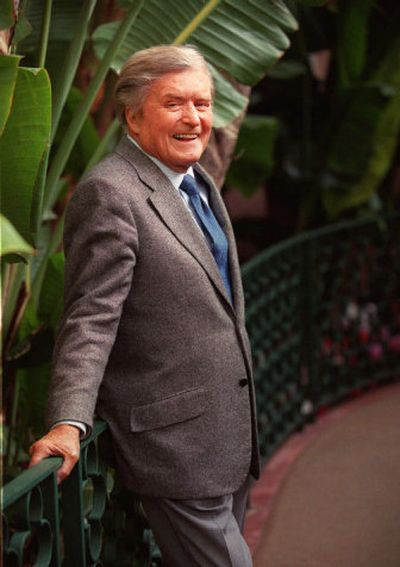Talk-show icon Mike Douglas dies on 81st birthday

Long before daytime television was filled with estranged spouses hurling insults in mock courtrooms, pop doctors handing out sex advice and shock shows with topics like “My girlfriend is a transvestite and I didn’t even know it!” millions of people tuned into “The Mike Douglas Show.”
There they were entertained by Mike Douglas, an easygoing former big-band crooner who for 90 minutes every weekday deftly mixed song and dance, helpful hints and a surprising dose of current events – all with a patina of civility that has all but disappeared from television.
Douglas, whose syndicated talk show ran from 1961 to 1982 on as many as 230 stations nationwide, died Friday in Palm Beach Gardens, Fla., on his 81st birthday. His wife of 61 years, Genevieve Douglas, said he was admitted to a hospital Thursday.
She wasn’t sure of the cause of death, but said he was being treated for recent dehydration stemming from the pursuit of his favorite pastime: golf.
“The Mike Douglas Show” was a respite from the day-to-day hassles faced by his audience, which was overwhelmingly stay-at-home moms. Every week Douglas had a different co-host who would join him in performing songs or having discussions with a wide variety of guests.
Critics today might deride what Douglas did as pabulum from a simpler time when audiences didn’t want to be challenged.
But consider some of the people who appeared on “The Mike Douglas Show”:
Malcolm X, Bella Abzug, Stokely Carmichael, Martin Luther King Jr., Abbie Hoffman, Ralph Nader, George Wallace, Woodward and Bernstein, Harry Truman, Richard Nixon, Gerald Ford, Jimmy Carter, Ronald Reagan and the Imperial Wizard of the Ku Klux Klan – and even a diminutive golfing tyke named Tiger Woods, who was a guest on the show just before his third birthday in 1978.
John Lennon and Yoko Ono once co-hosted the show and served as a buffer between Douglas and war protester Jerry Rubin, who persistently needled Douglas.
“We made it a point from the beginning that we weren’t going to talk down to the audience, which at that time was primarily women,” Douglas said.
Douglas even managed to break into the rock ‘n’ roll Top 40 charts with his sentimental ditty “The Men in My Little Girl’s Life,” which peaked at No. 6 in 1965.